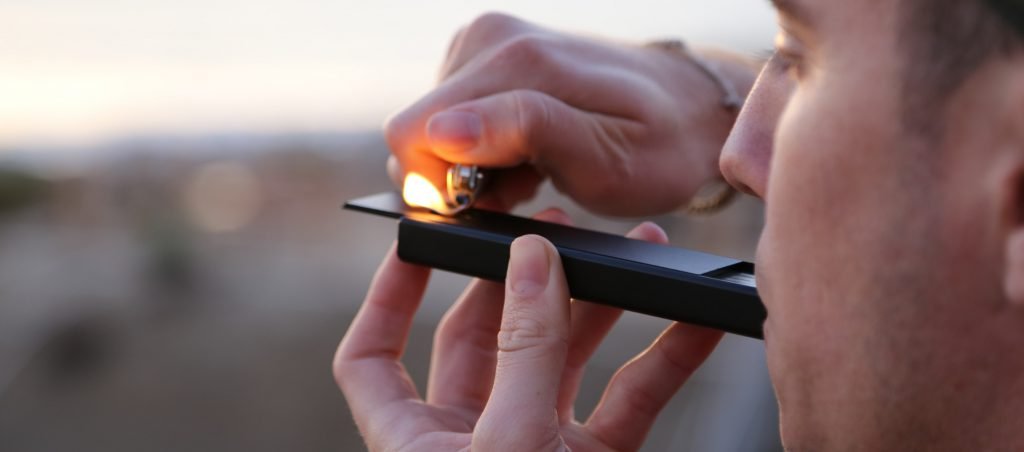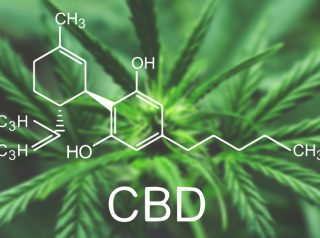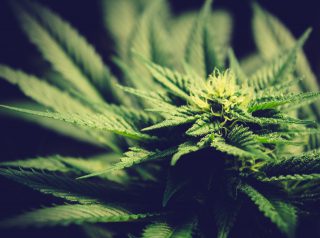With over 147 million users (or about 2.5% of the world population), marijuana is ranked as the most commonly used illicit psychoactive substance in the world. Considering its sublime euphoria-inducing properties and medicinal benefits, it is not hard to see why. Despite that, though, only a small percentage of its users actually get addicted.

It is estimated that only 9% of people who use cannabis will become addicted to it. This is comparatively lower than other substances such as tobacco (32%), heroin (24%), cocaine (17%), and alcohol (15%) with much higher substance dependence rates. Nonetheless, it is undeniable that it is still possible to get hooked up in it. That said, the best we could do is to know what makes marijuana addictive and how to avoid falling prey to the pitfall of dependence.
Page Content
What Makes Marijuana Addictive
To understand why marijuana is addictive, we have to know the most common reasons why people use cannabis in the first place.
- It makes them feel good. Being high makes one feel happy, relaxed, contented, and optimistic. It can even trigger bursts of laughter out of nowhere. In simple words, it is pure bliss.
- It helps relieve unwanted feelings. Weed can help alleviate stress, anxiety, depression, and other unpleasant emotions. It is a quick and easy escape hatch.
- It aids in better performance. Some people consume cannabis to improve their focus, creativity, and energy levels.
- Curiosity and peer pressure. Some teenagers consume cannabis to fit in and impress their friends. That, or they could just be naturally curious as to what being high feels like.
Whichever the reason may be, the result is the same: taking marijuana satisfies the desire to feel good and rewarded.

Our brains are hardwired to seek things that give us pleasure. Smoking marijuana floods your system with THC. This psychoactive compound then binds with CB1 receptors in the brain. As a result, the release of feel-good neurotransmitters such as dopamine is triggered, rewarding you with euphoric sensations.
Aside from satisfaction and a general sense of wellbeing, it also activates the brain’s reward pathways so that you will remember that consuming marijuana makes you feel good. And so, you are motivated to repeat the same behavior (toking) to get the same pleasurable reward (getting high).
In time, your body adapts by building up a tolerance to marijuana when this chemical cascade gets reinforced and repeated often. When this happens, dosing the same amount that used to make you happy will no longer produce enough dopamine to satisfy the cravings. Consequently, you increase THC dosage to get the same pleasurable effects.
Upping the dosage regularly eventually makes you lose control, leading to Cannabis Use Disorder (CUD).
How To Avoid Getting Addicted To Weed
We can perceive the future outcomes of our deeds. It is this ability that allows us to prepare for the consequences of our actions to either avoid harm or gain a reward. However, people are also prone to cognitive biases. For instance, some of us tend to be too optimistic for our own good. A good example is overestimating our ability to control the intake of a drug. Underestimating, on the other hand, may likely lead to addiction. Such a flaw in reasoning is called the optimism bias.
The first step to avoiding the pitfall of addiction is to realize that you are more prone to it than you think. That way, you can take these precautions seriously.
1. Know The Consequences Of Cannabis Addiction
The hallmarks of addiction are impairments on your physical, social, and occupational functioning. Addiction negatively impacts you in such a way that you can no longer take good care of yourself, your relationships, and responsibilities at work, school, and home. According to the National Institute on Drug Abuse, these ill effects can be short-term or long-term.

Short-Term effects:
- Panic
- Memory lapses
- Strange behavior
- Hallucinations and delusions
- Anxiety
- Fear
Long-Term effects:
- Poor school or work performance
- Lower quality of life
- Relationship issues
- Financial issues
- Antisocial behavior
- Impaired cognitive functioning
- Decline in IQ
2. Set Your Limitations & Stick To It
The initial decision to consume cannabis is usually voluntary. With continued use, however, your ability to exert self-control may become severely impaired.

To prevent this, make sure to set limitations first. There is no cookie-cutter approach when it comes to this because marijuana affects various people differently. It is entirely up to you, but going low and slow is always advisable. Setting schedules and how frequent you’ll allow yourself to toke may also help. The key here is to be a responsible consumer by setting limitations and practicing self-control and discipline by strictly sticking to self-imposed limitations.
3. Recognize Signs Of Addiction
Keep yourself in check by learning how to recognize the signs of cannabis addiction early on. The hallmark signs of CUD are compulsive use despite adverse effects and loss of self-control. Furthermore, the Diagnostic and Statistical Manual of Mental Disorders (DSM-5) lists several other symptoms and problematic behaviors:
Note: For it to be diagnosed as CUD, the problematic pattern of cannabis use should be causing clinically significant impairment or distress with at least two of the symptoms occurring over a 12-month period.

- Using marijuana in higher amounts or over a longer period of time than intended.
- Persistent desire and inability to control or reduce marijuana usage.
- Spending a significant amount of time acquiring marijuana, using it, and recovering from its effects.
- Intense and persistent cravings to use marijuana.
- Difficulties meeting responsibilities at work, school, or home due to recurrent cravings or marijuana use.
- Continued use of marijuana despite causing social or interpersonal problems.
- Neglecting social, occupational, or recreational activities in favor of marijuana use.
- Using marijuana in situations where it is dangerous to do so, such as while driving a car or operating machinery.
- Continued use of marijuana even though it is already causing physical or psychological problems.
- Developing tolerance to cannabis, either by needing a higher dosage to achieve the desired effects or a markedly diminished effect with continued use of the same amount of the substance.
- Developing withdrawal symptoms when use slows or stops or consuming cannabis to relieve or avoid withdrawal symptoms.
Should you recognize at least two of the criteria mentioned above in you or your loved ones, do not hesitate to contact the Substance Abuse and Mental Health Services Administration (SAMHSA) National Helpline at 1-800-662-4357 for information on support and treatment facilities.






[…] are some people out there who have an ‘addictive personality’ wherein they are vulnerable to the effects of certain substances which includes drugs and […]